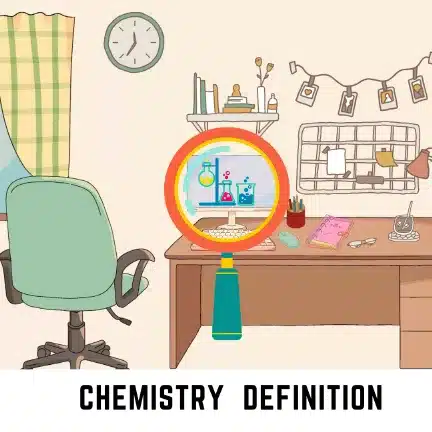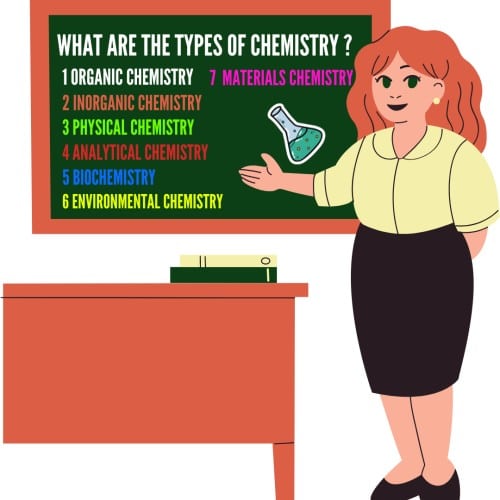I. Introduction
A. Briefly introduce the topic of chemistry and its importance
Chemistry definition is a natural science that studies the properties and behavior of matter, including its composition, structure, and interactions with other substances. It is a fundamental discipline that is essential to our understanding of the world around us. Chemistry plays a vital role in many aspects of our lives, including medicine, agriculture, technology, and the environment.
B. Explain the purpose of the blog post and what the reader can expect to learn
The purpose of this blog post is to provide an introduction to chemistry, including its definition, branches, and applications. By reading this post, readers will gain a basic understanding of the science of matter and reactions, as well as how chemistry affects our daily lives.
II. Definition of Chemistry

A. Overview of chemistry as a science
Chemistry is a natural science that explores the properties and behavior of matter, the composition of substances, and the changes that occur during chemical reactions.
B. Definition of chemistry
Chemistry encompasses various disciplines, including analytical chemistry, biochemistry, physical chemistry, organic chemistry, and inorganic chemistry.
C. Explanation of the scope of chemistry
The scope of chemistry ranges from the study of the smallest particles of matter to the exploration of the largest structures in the universe.
III. What is Chemistry definition ?

A. Define chemistry and its different branches
Chemistry is the study of matter and its interactions with other matter and energy. It encompasses a broad range of topics, including organic, inorganic, physical, analytical, and biochemistry.
B. Provide examples of how chemistry affects our daily lives
Chemistry affects many aspects of our daily lives, from the food we eat to the products we use. For example, chemistry is involved in the production of medicines, plastics, and electronics, as well as in the development of new materials and technologies.
What are the types of chemistry definition ?

1 Organic Chemistry
Organic chemistry is the study of carbon-based compounds, including their structure, properties, and reactions. This area of chemistry focuses on the study of life processes, including the structure and function of biomolecules such as DNA and proteins. It also includes the study of synthetic organic compounds, such as plastics, pharmaceuticals, and materials.
2 Inorganic Chemistry
Inorganic chemistry is the study of elements and compounds that do not contain carbon. This area of chemistry focuses on the study of metals, minerals, and other inorganic compounds. It includes the study of reactions between these substances and the properties that arise from their interactions.
3 Physical Chemistry definition
Physical chemistry is the study of the physical properties of matter and the relationships between these properties and the chemical properties of substances. This area of chemistry involves the application of physics to the study of chemical systems. It includes the study of thermodynamics, quantum mechanics, and spectroscopy.
4 Analytical Chemistry
Analytical chemistry is the study of the identification, separation, and quantification of substances in a sample. This area of chemistry involves the development of analytical methods and techniques for detecting and measuring chemical compounds. It includes the use of chromatography, spectroscopy, and other analytical techniques.
5 Biochemistry
Biochemistry is the study of the chemical processes that occur within living organisms. This area of chemistry involves the study of the structure and function of biomolecules such as proteins, nucleic acids, and carbohydrates. It includes the study of metabolic pathways and the regulation of biochemical reactions.
6 Environmental Chemistry
Environmental chemistry is the study of the chemical processes and reactions that occur in the environment. This area of chemistry involves the study of the interaction of chemicals with the natural environment, including the study of pollutants and their effects on ecosystems.
7 Materials Chemistry
Materials chemistry is the study of the design, synthesis, and characterization of materials with specific properties. This area of chemistry involves the development of new materials for use in various applications, including electronics, energy storage, and medicine.
IV. The Science of Matter
A . Explain what matter is and its different states
Matter is anything that has mass and takes up space. It can exist in three states: solid, liquid, or gas. Matter can also undergo changes, such as melting, boiling, or freezing, that result in a change in its state.
B. Describe the properties of matter and how they can be measured
The properties of matter can be measured in various ways, such as its mass, volume, density, and temperature. These properties can be used to identify different substances and to study their behavior.
C. Provide examples of how matter can change and the role of chemistry in these changes
Chemistry plays a crucial role in understanding how matter changes, such as through chemical reactions or phase transitions. For example, chemistry is involved in the development of new materials, such as superconductors, and in the production of energy from renewable sources.
V. The Science of Reactions
A. Define chemical reactions and the different types
Chemical reactions occur when two or more substances interact to form new substances with different properties. There are several types of chemical reactions, including synthesis, decomposition, combustion, and oxidation-reduction.
B. Explain the factors that affect chemical reactions
Chemical reactions are influenced by various factors, such as temperature, pressure, concentration, and catalysts. Understanding these factors is essential for predicting and controlling chemical reactions.
C. Provide examples of everyday chemical reactions
Chemical reactions occur all around us, from the rusting of iron to the combustion of gasoline in a car engine. Chemistry is involved in many everyday processes, such as cooking, cleaning, and digestion.
VI. Applications of Chemistry
A Highlight the various fields that apply chemistry, such as medicine, agriculture, and technology
Chemistry is applied in many fields, including medicine, agriculture, and technology. It plays a vital role in the development of new drugs, fertilizers, and materials, as well as in the design of new technologies, such as solar cells and fuel cells.
B Discuss how chemistry contributes to advancements in these fields
Chemistry contributes to advancements in these fields by providing a fundamental understanding of the properties and behavior of matter, as well as by developing new materials and techniques. For example, chemistry is involved in the development of new cancer treatments and in the production of genetically modified crops.
VII. Conclusion
A. Summarize the main points of the blog post
Chemistry is a fundamental science that is essential to our understanding of the world around us. It encompasses the study of matter and its interactions with other matter and energy, as well as the science of reactions.
B Emphasize the importance of chemistry in our lives
B. Chemistry affects many aspects of our daily lives, from the food we eat to the products we use. It plays a vital role in many fields, including medicine, agriculture, and technology.
C Provide additional resources for readers to learn more about chemistry
C. For readers who want to learn more about chemistry, there are many resources available, including textbooks, online courses, and scientific journals. By continuing to study chemistry, we can gain a deeper understanding of the world and develop new technologies and materials that benefit society
Thank you for reading my article, comment what is lacking in the article. 🎉
Article made for United State school children
